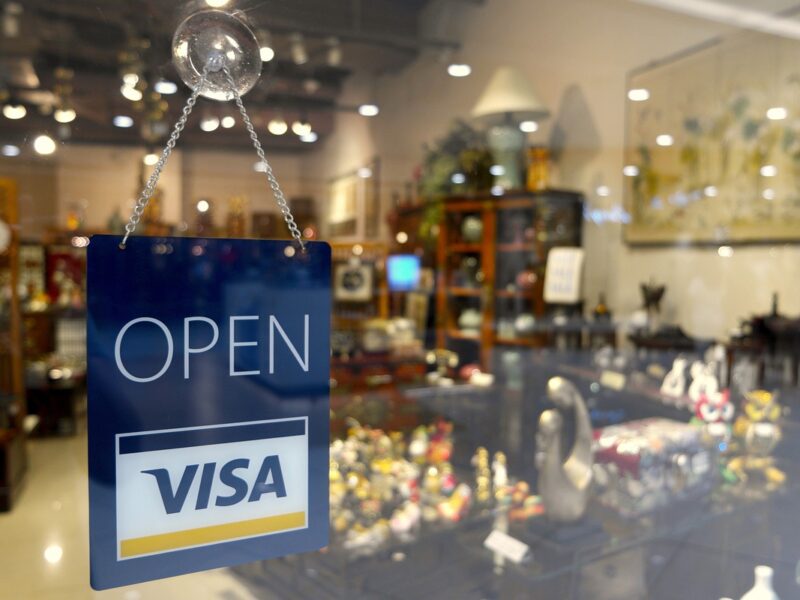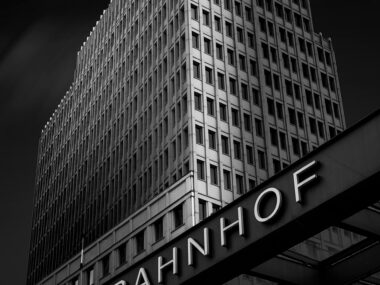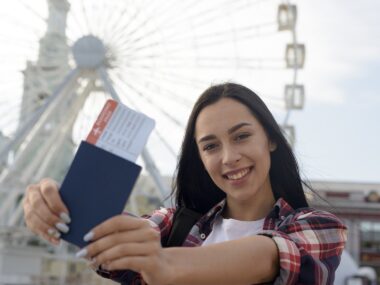One of the most common ways for foreign nationals who are trying to migrate to the USA in recent years is the H-1B visa pathway. This is one of the most sought-after U.S. visas for skilled professionals looking to work and earn competitive salaries in the United States.
With the H-1B visa, U.S. companies are allowed to employ foreign workers in specialized occupations that require advanced knowledge and skills. The most common fields that benefit from this opportunity are fields such as technology, engineering, medicine, finance, and education.
Every year, thousands of foreign professionals apply for H-1B visa sponsorships in the hopes of securing employment in one of the world’s largest economies. The H-1B visa sponsorship opportunities in the USA are highly competitive, but they also offer a valuable pathway to long-term residency and career advancement in the U.S.
What is the H-1B Visa?
The H-1B visa is a non-immigrant visa that allows U.S. employers to hire foreign workers for up to six years in specialized fields where they need expertise that may not be readily available domestically. H-1B visas are initially granted for three years and can be extended for an additional three years. In some cases, H-1B visa holders may also apply for a green card (permanent residency) while working in the U.S.
Key Characteristics of the H-1B Visa
- Specialized Occupations: The visa is reserved for professionals in fields such as IT, engineering, healthcare, research, architecture, and finance.
- Employer Sponsorship: Foreign workers must be sponsored by a U.S. employer who submits a petition on their behalf.
- Educational Requirements: Applicants must have a bachelor’s degree or higher in a specialized field.
- Cap Limit: There is an annual cap on the number of H-1B visas issued, currently set at 85,000, including 20,000 visas reserved for individuals with advanced degrees from U.S. institutions.
- Dual Intent: The H-1B visa allows foreign workers to apply for permanent residency (green card) while they are in the U.S., giving them dual intent status.
Who is Eligible for H-1B Visa Sponsorship?
To qualify for an H-1B visa, applicants must meet several key requirements. These eligibility criteria ensure that foreign workers are equipped with the specialized knowledge and expertise needed for the job in the U.S.
Educational Qualifications:
- Bachelor’s Degree or Higher: Applicants must hold at least a bachelor’s degree or its equivalent in the field they are applying to work in. A higher level of education, such as a master’s or Ph.D., increases the chances of being selected for the H-1B visa lottery, especially with the 20,000 additional visas reserved for advanced degree holders.
- Field of Study Match: The degree should be directly related to the job position. For example, an IT specialist applying for a software engineering job should have a degree in computer science or a related field.
Job Offer in a Specialized Field:
- Specialized Occupations: The H-1B visa is designed for workers in specialized occupations that require theoretical and practical knowledge in areas like IT, engineering, medicine, mathematics, finance, architecture, and the sciences.
- Employer Sponsorship: A U.S. employer must sponsor the foreign worker. The employer must submit a petition to the U.S. Citizenship and Immigration Services (USCIS) and prove that they could not find a qualified U.S. worker to fill the position.
Labor Condition Application (LCA):
- Wage Requirements: Employers are required to file an LCA with the U.S. Department of Labor to ensure that foreign workers are paid the prevailing wage for the job in their geographic area and that hiring a foreign worker will not negatively affect the wages of U.S. workers.
H-1B Visa Sponsorship Process
Securing an H-1B visa requires going through several steps, including obtaining a job offer from a U.S. employer, submitting an H-1B petition, and waiting for the outcome of the annual H-1B lottery.
- Secure a Job Offer: The first and most critical step in the H-1B visa process is securing a job offer from a U.S. employer willing to sponsor the visa. Many companies in the technology, finance, healthcare, and engineering sectors frequently hire foreign workers through the H-1B program.
- Employer Files the H-1B Petition: Once a job offer is in place, the employer files an H-1B petition (Form I-129) on behalf of the foreign worker with USCIS. The employer also needs to file a Labor Condition Application (LCA) with the Department of Labor, outlining the wage levels and working conditions.
- Enter the H-1B Visa Lottery: Due to high demand for H-1B visas, USCIS runs an annual lottery to allocate the 85,000 available visas. If the foreign worker’s petition is selected in the lottery, USCIS will process the application and provide approval if all requirements are met.
- Visa Approval and Employment: If the H-1B petition is approved, the foreign worker can begin working in the U.S. for the sponsoring employer starting on or after the designated start date, typically October 1st of the year the visa was granted.
- Possibility of Visa Extensions: H-1B visas are valid for three years and can be extended for an additional three years. In some cases, foreign workers can continue working in the U.S. beyond the six-year limit if their employer sponsors them for permanent residency (green card).
Top Industries Hiring Foreign Workers with H-1B Visa Sponsorship
The H-1B visa program is designed to fill highly specialized jobs in industries that rely on foreign talent to meet labor market demands.
- One of the biggest sponsors of H-1B visas in the USA is the tech industry. Information Technology (IT) companies like Google, Apple, Microsoft, Amazon and Facebook sponsor thousands of foreign workers each year for specialized roles in software development, data science, cybersecurity, and IT consulting.
- Engineering companies across various sectors—civil, mechanical, electrical, and aerospace—often seek skilled foreign engineers through the H-1B visa program. Companies like Boeing, Tesla, and General Electric hire engineers to work on cutting-edge projects in the U.S.
- The demand for healthcare professionals, particularly physicians, nurses, and researchers, is growing. Hospitals, medical research institutions, and pharmaceutical companies regularly sponsor H-1B visas for highly skilled healthcare workers.
- The financial sector, including investment banks, insurance firms, and fintech startups, is another key industry for H-1B sponsorship. Goldman Sachs, JPMorgan Chase, and Citibank are some of the major financial institutions sponsoring foreign workers in roles like financial analysis, accounting, and risk management.
- Education and Research: Universities and research institutions often sponsor H-1B visas for foreign professors, researchers, and scholars in fields like mathematics, physics, and biotechnology.
Top Strategies for Securing H-1B Visa Sponsorship
Competition for H-1B visa sponsorship is fierce, but with the right approach, foreign workers can improve their chances of landing a sponsored job in the U.S. To increase your chances of securing this type of visa opportunities you could employ the following strategies:
- Target Companies That Regularly Sponsor H-1B Visas: Focus on applying to companies known for sponsoring H-1B visas. Large multinational companies, especially in the tech and healthcare sectors, have established processes for hiring foreign workers and handling the H-1B visa petition process.
- Leverage Job Portals and Networking: Utilize job search platforms such as LinkedIn, Indeed, and Glassdoor to find U.S. companies that offer visa sponsorship. Additionally, attending industry conferences and networking events can help you connect with employers actively looking for international talent.
- Improve Your Skills and Qualifications: Enhancing your qualifications, such as obtaining advanced degrees, certifications, or specialized skills in high-demand areas like AI, cloud computing, or cybersecurity, can make you a more attractive candidate for H-1B sponsorship.
- Work with Staffing Agencies: Some staffing agencies specialize in placing foreign workers in U.S. companies that sponsor visas. These agencies have established relationships with employers and can help guide you through the H-1B application process.






